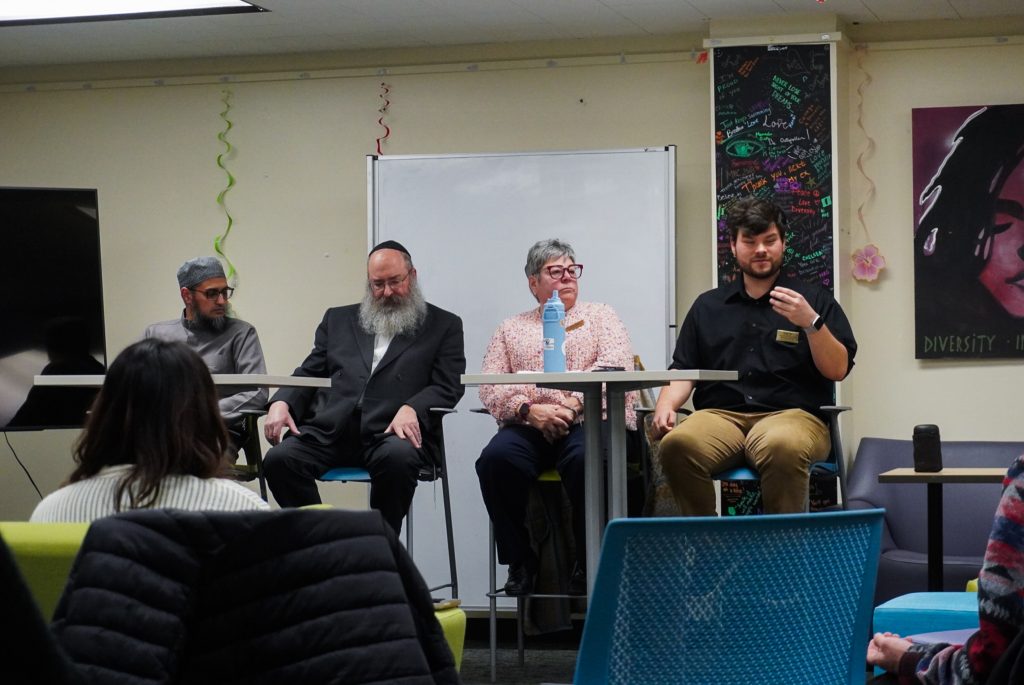With speakers representing Catholicism, Judaism, Islam and Indigeneity, the Multicultural Resource Center and the Binghamton University Interfaith Council co-hosted a panel discussion on religion and spirituality.
Held on Wednesday, the lecture was moderated by Leonel Diaz Jr., the MRC’s director of intercultural affairs. Diaz directed questions to the four panelists — Sister Rose Casaleno, Rabbi Aaron Slonim, Imam Anas Shaikh ‘17 and Ethan Tyo, representing Indigeneity. The inspiration for the event, which was attended by students, community members and MRC representatives, stemmed from a perceived need among students, staff and faculty for a reminder of the distinct role religion plays in shaping people’s daily lives.
Tyo, who is Mohawk and part of the Haudenosaunee Confederacy, said that “Indigenous people and our cultures are not a monolith.”
“We have stories,” Tyo said. “We have an understanding of creation. We have a creation story that really places ourselves, our understanding of the world around us and our relationship to both, not only to each other, but also our relationship to other beings and the land.”
Each panelist spoke for several minutes, highlighting the main tenets of their respective religions and each belief system’s common rules and practices. The three religious leaders on the panel are all members of the Interfaith Council, an organization of spiritual leaders who serve the University community.
Questions were answered concerning how students of different religious or spiritual backgrounds can engage in respectful discourse with one another.
“We all come from different places, whether it’s religion, race, spirituality, whatever, we’re different,” Casaleno, the director of Newman House, the University’s Catholic community, said. “And that’s the beauty of creation, because we all are different, and we bring something different to a table. I would say that to me, that’s the most important piece, but it’s really being aware of our own prejudice and our own judgments before we enter or when we talk.”
Shaikh, director of the Islamic Organization of the Southern Tier, shared two things to be mindful of when engaging in religion-based discussion.
“No. 1 is that everyone has a right to their religion,” Shaikh said. “That’s No. 1. No. 2 is, everyone is there. You’re there to learn about someone else. You’re not there to prove that you’re better than them, and you’re not there to prove that your religion is superior to them, right? Everyone may have that personal belief.”
As the event was intended to examine the role of religion and spirituality in political discourse, panelists highlighted the importance of treating others with dignity. Though this value is taught in different ways — through the Bible, Quran, Torah or oral tradition — they emphasized the value of listening to others and respecting different backgrounds.
Slonim, the director of the Rohr Chabad Center for Jewish Student Life, shared a similar view on the coexistence of multiple belief systems. In the Jewish faith, he said, everyone has their own life purpose, without which the world would be incomplete.
“We have 7 billion people in this world that God created, and he wants us to be here in this world, in this time, in this generation,” said Slonim. “And each and every one of us have this small piece of the puzzle that we are filling in to [make] the whole picture [in] the best way possible.”



